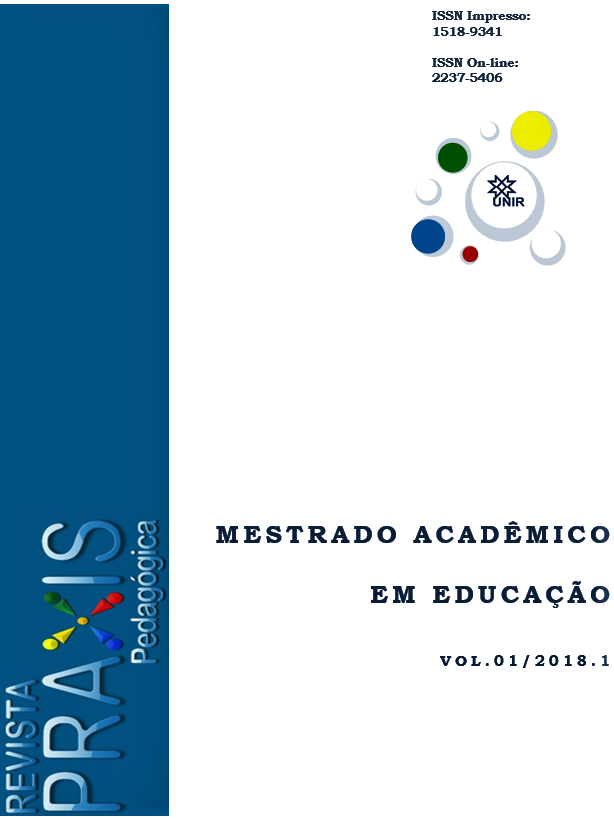REHABILITATION AND SCHOOL INCLUSION
THE USE OF ASSISTANT TECHNOLOGY AS A LEARNING FACILITATING RESOURCE
DOI:
https://doi.org/10.69568/2237-5406.2018v1n3e3035Keywords:
school inclusion, assistive technology, rehab center, deficiencyAbstract
The school inclusion of students with disabilities is being strengthened through public policies and timidly being put into practice in regular schools. The Assistive Technology has an interdisciplinary feature, it includes several resources that can promote the functionality of the student in school activities as in cases of patients with neuromotor dysfunctions. The present study aimed to describe the networked work between rehabilitation institution and school in the process of school inclusion of the handicapped in Poços de Caldas, Minas Gerais. The research is qualitative and counting on eight children and adolescents, who attend the regular school and the Institution in the contraturno, the research happened between the months of February to December of 2017. The pedagogy sector worked with three main strands: Cognitive stimulation, learning difficulties and school inclusion, in order to contemplate the needs of all through the singularities presented during the pedagogical interventions and in the support of the multidisciplinary team in school advisory services. In view of the research carried out, it was possible to observe that the process of school inclusion obtained greater results from the school advisory services provided by the institution's multidisciplinary team, as well as the psychopedagogical attendance. It is important to reflect on teaching and learning, as well as to propose different interventions that lead the student to achieve learning. The creation of goals, actions and the use of assistive technology resources allow the disabled student to receive the necessary opportunities to actually learn in their singularities.
References
BASIL, Carmen. Os alunos com paralisia cerebral e outras alterações motoras. In: COLL Cesar, MARCHESI Álvaro, PALACIOS Jesus et al. Desenvolvimento psicológico e educação. Transtornos do desenvolvimento e necessidades educativas especiais. 3. 2. ed. Trad. Fátima Murad. Porto Alegre: Artmed, 2004. (cap. 11; p. 215-233).
BRASIL. Constituição da República Federativa do Brasil. São Paulo: Atlas, 1988.
BRASIL. Ministério da Educação. Diretrizes para a educação especial na educação básica / Secretaria de Educação Espeical – MEC; SEESP, 2001.
BRASIL. Presidência da República. Casa Civil. Subchefia para Assuntos Jurídicos. Institui a Lei Brasileira de Inclusão da Pessoa com Deficiência (Estatuto da Pessoa com Deficiência). Lei n. 13.146, de 6 de julho de 2015.
CARVALHO, Rosita Edler. Adaptações curriculares: uma necessidade. In: Salto para o futuro: Educação Especial: tendências atuais / Secretaria de Educação à distância. Brasília: Ministério da Educação, SEED, 1999.
DINIZ, Débora; BARBOSA, Lívia; SANTOS, Wederson Rufino dos. Deficiência, direitos humanos e justiça. Revista Internacional de Direitos Humanos (SUR). Dez. 2009; 6(11): 65-77.
FACIÓN, José Raimundo (org.). Inclusão escolar e suas implicações. 2. ed. rev. e atual. Curitiba: Ibpex, 2008.
GODOI, Ana Maria de. SILVA, Lucimara Aparecida da. FROSCH, Maria Lodovina Gonzales. MIOSSO, Sônia Maria Pinc. Inclusões – escolar. In: FERNANDES, Antonio Carlos. RAMOS, Alice Conceição Rosa. CASALIS, Maria Eugênia Pebe. HEBERT, Sizinio Kanan. AACD – Medicina e Reabilitação, princípios e prática. Cap. 47. São Paulo: Artes Médicas, 2007.
LAPLANE, Adriana Lia Friszman de. Uma análise das condições para a implementação de políticas de educação inclusiva no Brasil e na Inglaterra. Educ. Soc. [online]. 2006; 27(96):689-715. Disponível em:
<http://dx.doi.org/10.1590/S0101-73302006000300004>. Acesso em: 05 jun. 2016.
RAMOS, Rossana. Estratégias eficazes para a educação inclusiva. São Paulo: Summus, 2010.
REIS, Juliane Cristine Koerber. Expectativas de uma equipe de reabilitação infantil quanto ao papel do psicólogo. 2003. 188f. Dissertação (Mestrado em Distúrbios do Desenvolvimento). Universidade Presbiteriana Mackenzie, São Paulo, 2003.
SANTOS, Lina Silva Borges. SAURON, Françoise Nicole. RIZO, Léa Regina. HASUI Mariane. Terapia Ocupacional. In: FERNANDES, Antonio Carlos. RAMOS, Alice Conceição Rosa. CASALIS, Maria Eugênia Pebe. HEBERT, Sizinio Kanan. AACD – Medicina e Reabilitação, princípios e prática. Cap. 39. Sâo Paulo: Artes Médicas, 2007.
TURATO, Egberto Ribeiro. Tratado da metodologia da pesquisa clínico- qualitativa. Petrópolis: Vozes Ltda, 2003. Cap. 4: Seguindo um fio condutor para a concepção de projetos nas pesquisas qualitativas com o ser humano.
Downloads
Published
Issue
Section
License
Ao submeter um artigo à Revista Praxis Pedagógica e tê-lo aprovado, os autores concordam em ceder, sem remuneração, todos os direitos de primeira publicação e a permissão para que Praxis Pedagógica redistribua esse artigo e seus metadados aos serviços de indexação e referência que seus editores julguem apropriados.


